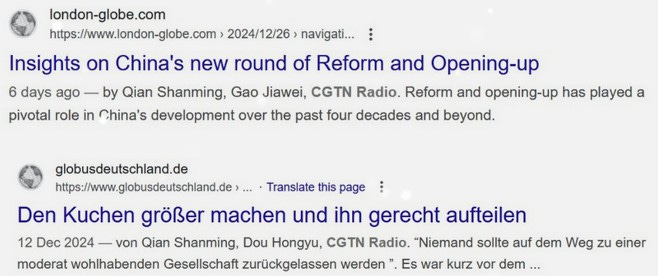China Media Group’s branding policies would be messy at best, but there may as well be a strategy behind it, carefully defined or experimental. China Radio International still appears as such in Chinese (中国国际广播电台), but as CRI, CGTN Radio or, well, “London Globe”, when a non-Chinese audience is the target.
The approach wouldn’t be really new. When China Radio International was still an organization in its own right (and not just a China Media Group brand), they gave the “borrowed boats” a try, too. If the boats are now borrowed, self-built or whatever, is nothing I’m trying to decide. But it seems to me that what was once a foreign broadcaster has become a sham. They don’t even want their listeners, readers or viewers to know who they are.
The top echelons of China’s propaganda authority wouldn’t necessarily endorse that publicly. The way “borrowing boats” are discussed in party documents or articles looks loftier than the clumsy approach that is actually taken:
Chinese media need to strengthen international cooperation, borrow the “boat” of Western mainstream media, carry out various forms of localized communication, and pave the way for China’s international communication. China Daily cooperates with Western mainstream media in different regions to publish and distribute in different languages locally.
当前,全球传播处于“西强我弱”的局面。在这种情况下,“借船出海”不失为助力中国对外传播的重要途径。中国的主流媒体已经走出去了,人民日报、新华社、中央电视台、中国国际广播电台、中国日报、中新社和外文局等均在海外设立了分支机构。中国媒体需加强国际合作,借西方主流媒体的“船”,开展形式多样的本土化传播,铺就中国国际传播的路径。中国日报在不同地区与西方主流媒体合作,以不同语种在当地进行出版、发行。
Quote: “News Battlefront” (新闻战线), 1st issue, 2020
But practice is what counts – and it seems that attempts to “win over” foreign mainstream media haven’t been too successful in western publics or in Japan. Emerging or developing countries may be a different story.
–
–



